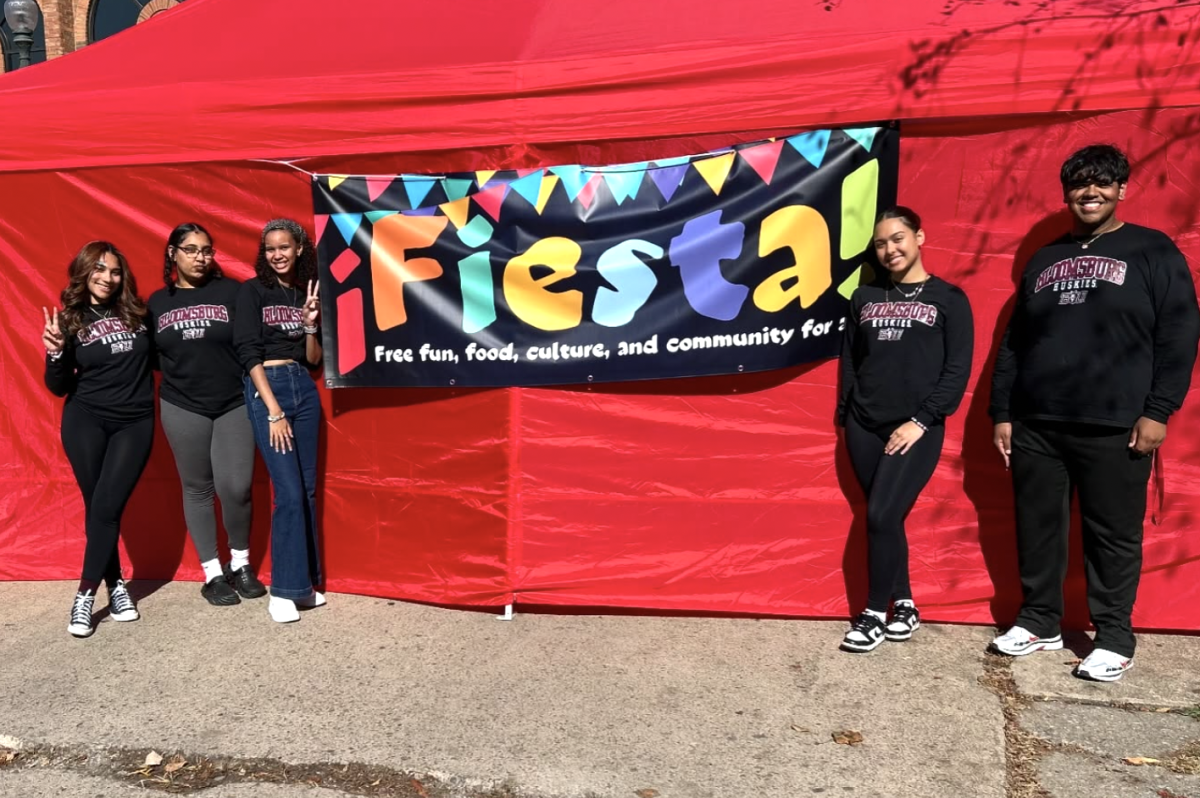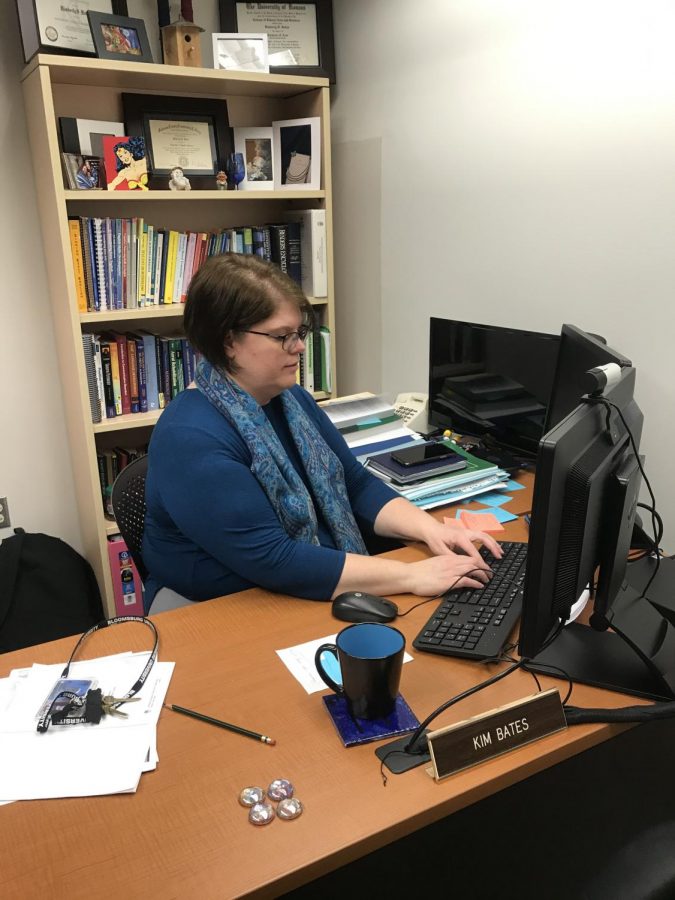A sneak peak into a student’s life
ASL/English Interpreting Majors
Professor Kim Bates is shown here grading our work and videos. This may include comments of what items she has found or providing us with different strategies to use for next assignment.
February 6, 2020
Imagine you and others regularly analyzing your work, studying a second language that is constantly developing, and not exactly knowing what an assignment is until you are actually there. This is a sneak peak in the day of an American Sign Language(ASL)/ English Interpreting student. We will explain what it means to be in this major and the challenges we face everyday.
When you approach senior year or start of junior year, you will use the knowledge you have learned about in the first two years and put it into action. Before we get into the actual practice of interpreting, it is important to understand what ASL is.
ASL is a language like English, Spanish, and any other language you can name. The only difference is using our hands to communicate instead of our voices. Just like here in America we speak English and in Italy they speak Italian. Similarly, American Sign Language is used in America while in Italy, they use Italian Sign Language. It is necessary to know this because many people believe that ASL is the universal language for all deaf people around the world. There is an international sign language but this is a different story.
Within ASL, there are many different branches of communication. Some deaf individuals prefer more English-like ASL while others prefer native ASL communication.
This is something interpreters must figure out by trying to match the consumers language level to the best of their ability. We discuss this heavily in class. We also work on our communication skills with the “hearing world”. The “hearing world” is full of questions and stigmas about the deaf community. We as future interpreters must professionally approach these situations with respect and knowledge.
In the day as a seniorASL/ English interpreting major, we will go to class to record ourselves interpret a video, or in-person presentation, or a mock scenario. We will then take our recordings and analyze our entire interpretation. This is one of the hardest parts as we must be honest with our mistakes and point them out. This part is a very long process of picking out every strength and weakness.
When we interpret, we will sometimes have a “feed” interpreter. This person is another interpreter who helps us get the message out efficiently. We will get feedback from this person as well as our professors. Something we have become accustomed to is accepting feedback as it is a way to grow. A part of our progression, we must attend Deaf events and tutoring to learn the language on a deeper understanding, outside of the classroom.
Many people think our major is simple and easy. This is something that frustrates us because no one understands the amount of hours we put in a day to become a better interpreter. As many majors, we need observations for our class requirements.
Unlike many other majors, we need lab hours; thirty lab hours to be exact. These hours are additional to our homework, projects and reflections. Lab hours are for us to practice outside of the classroom as we don’t get enough time in class to be at the skill level we need to be at when graduation hits. Again, you see the pattern of outside the classroom work. When we are in the classroom, we learn and practice information that is definitely important. However, it just isn’t enough. We luckily have amazing professors to help us through this journey.
After all of this work, we then have our other classes to attend to. Many of us do have minors and are dual majors. We also have outside clubs and organizations that we are a part of on top of it all.
We, ASL/ English interpreting majors, have developed a skill of organization and planning. We are flexible individuals who live by the phrase, “it depends”. No situation is ever the same in interpreting. This is why we practice for all scenarios as no two are the identical. With now knowing all the work we put into our practice, you can start to understand why it frustrates us when people tell us that their major is more difficult than ours or ours doesn’t seem too bad. Especially, when we have been doing this for all four years.
All majors have difficulties.These were some of ours. It is important to respect all majors as we are equally important in the world. For the future, we at The Voice would love to hear about a day in your shoes. Tell us about your major and the challenges you have faced. No outside major knows more about yours than you do!
A sneak peak into a
student’s life
ASL/English Interpreting Majors

























